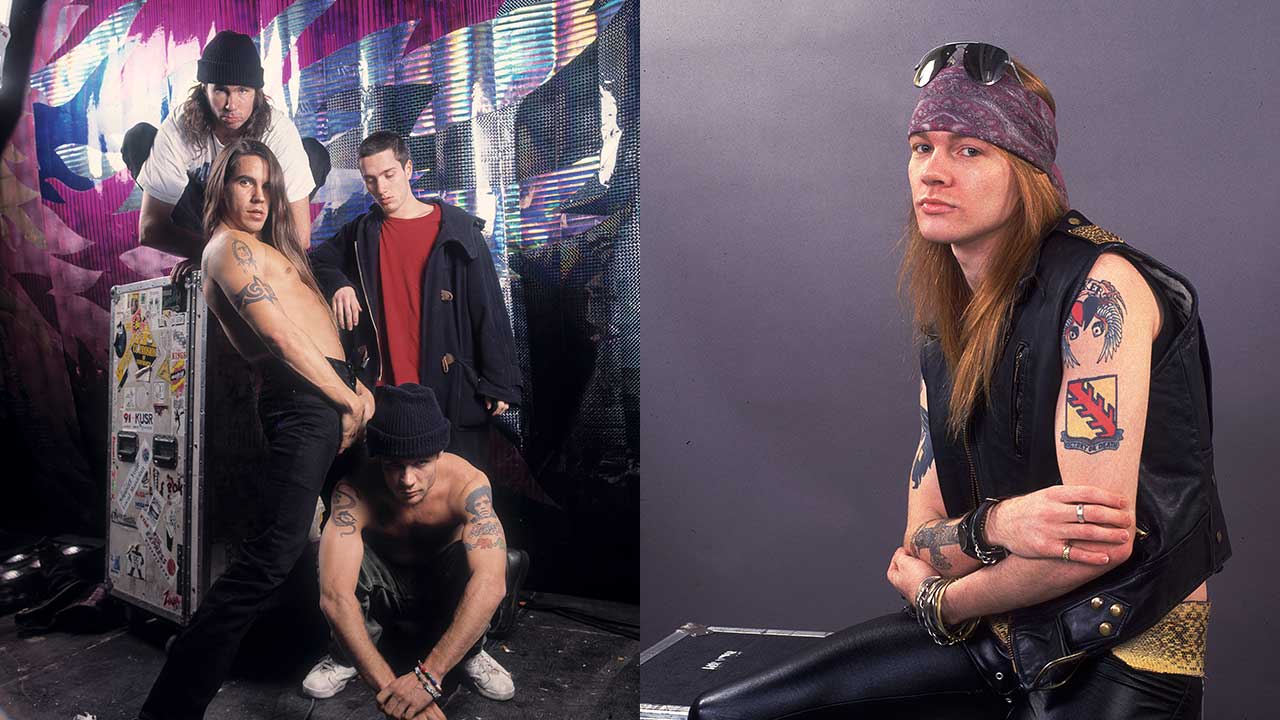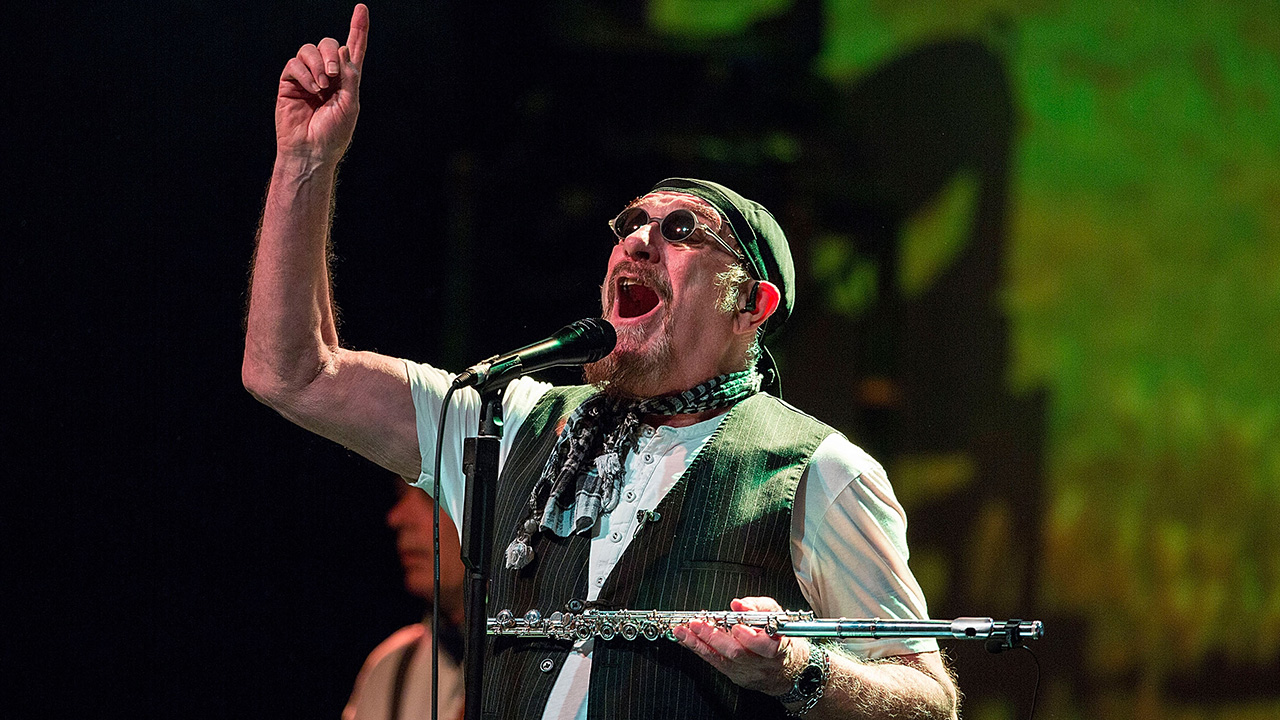How Red Hot Chili Peppers recorded a sweet tribute to Guns N' Roses, but ended up causing beef with Axl Rose instead
Guns N' Roses frontman Axl Rose wasn’t happy about Red Hot Chili Peppers' "tribute" to his band on their fourth record

As the 80s came to a close, no-one was pinpointing the Red Hot Chili Peppers as one of the next decade’s biggest bands. The group that frontman Anthony Kiedis described to Classic Rock’s Mick Wall as “the psychedelic sex-funk band from heaven” were considered to be a bit of a joke, but after the death of guitarist Hillel Slovak from a heroin overdose in 1988, no-one was laughing anymore. Drummer Jack Irons was amongst those who thought the band had run its course, so devastated by Slovak’s death that he checked himself into a hospital for psychiatric care.
Somehow, out of the tragedy they didn’t just find a way forward, they made the steps that would make them one of the biggest and most enduring groups of their generation. “Like me, Hillel had the disease of drug addiction,” Kiedis told Mick Wall in 1990. “He didn’t die of an overdose, he died from a disease. But in a strange way we found strength from that. It forced me to make a choice: I could either join Hillel, or I could try and finish my life.”
Hope came in the discovery of 18-year-old virtuoso guitarist John Frusciante and beefy drummer Chad Smith, additions who would blow open the sonic possibilities for the Chili Peppers. From the off, the alchemy was perfect, Smith’s muscular rock grooves and Frusciante’s fluid, blues-funk licks taking the band’s music into another realm. They emerged from studio sessions with producer Michael Beinhorn with the best songs of their career and their finest record so far. Fourth album Mother’s Milk moved beyond their origins and paired their sound with mainstream rock melodies. As Wall wrote in Classic Rock: “When RHCP rocked now, they were a match even for GN’R.”
Perhaps that’s why they included a nod to the 80s titans with a deliberately wonky attempt at the Sweet Child O’Mine riff at the end of the track Punk Rock Classic. “We loved Appetite,” Smith told Classic Rock. “I remember sitting in the car, smoking weed, listening to that record with John.” The problem was that Axl Rose saw the tribute as nothing but a piss-take from pretenders to G’NR’s throne. “Anthony tried to explain that to Axl but I think it fell on deaf ears.”
Axl’s approval or not, Red Hot Chili Peppers had the first hit of the career. Mother’s Milk signalled a huge upswing in the fortunes of the Chili Peppers, selling over 500,000 copies in the US and setting them up for future success. Smith puts it down to the chemistry that happened when the four of them got in a room together. “We got four guys in the universe that ended up being in Los Angeles at the same time, and really that was the whole thing of it,” he said. They didn’t look back.
Sign up below to get the latest from Classic Rock, plus exclusive special offers, direct to your inbox!
Niall Doherty is a writer and editor whose work can be found in Classic Rock, The Guardian, Music Week, FourFourTwo, Champions Journal, on Apple Music and more. Formerly the Deputy Editor of Q magazine, he co-runs the music Substack letter The New Cue with fellow former Q colleague Ted Kessler. He is also Reviews Editor at Record Collector. Over the years, he's interviewed some of the world's biggest stars, including Elton John, Coldplay, Radiohead, Liam and Noel Gallagher, Florence + The Machine, Arctic Monkeys, Muse, Pearl Jam, Depeche Mode, Robert Plant and more.

